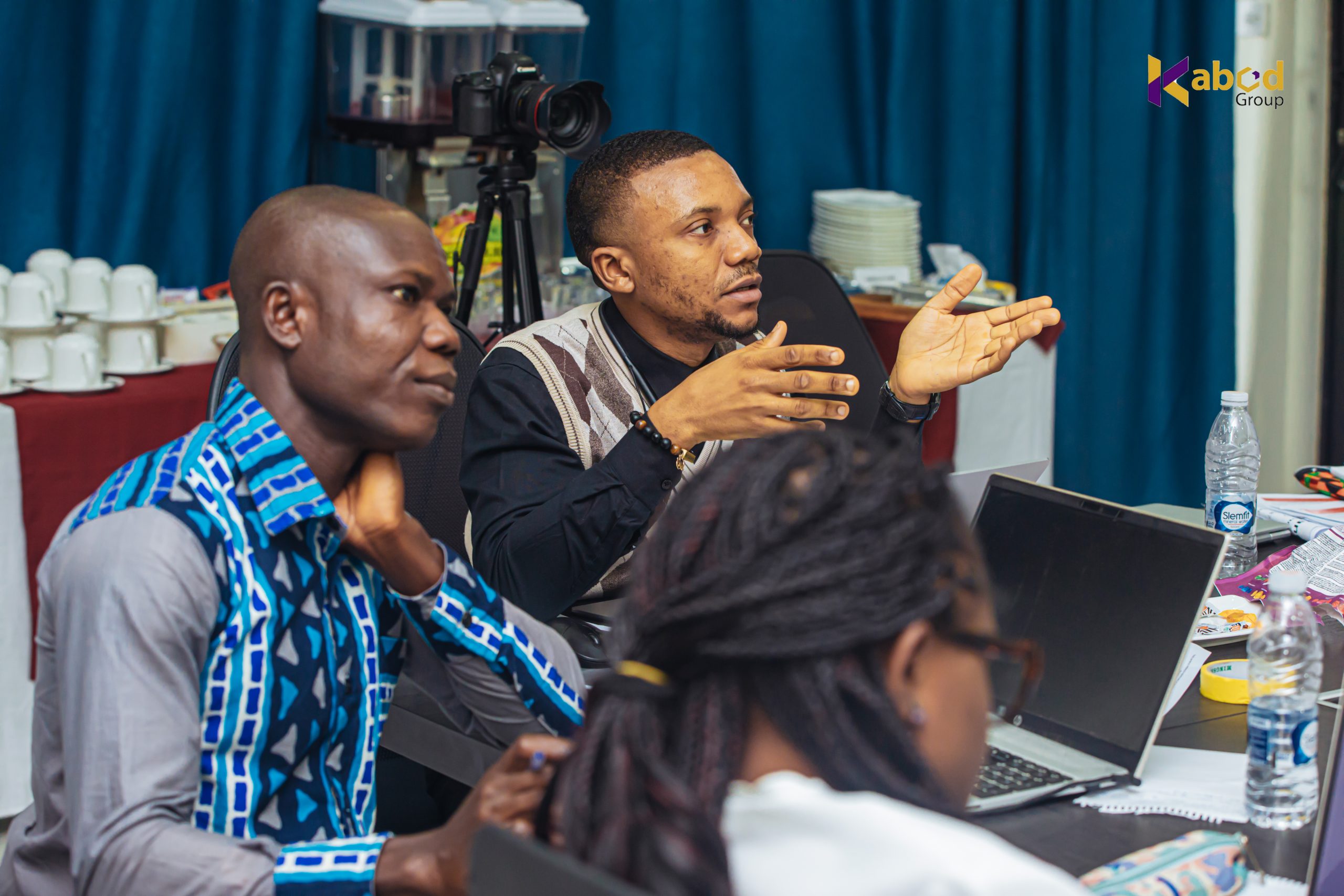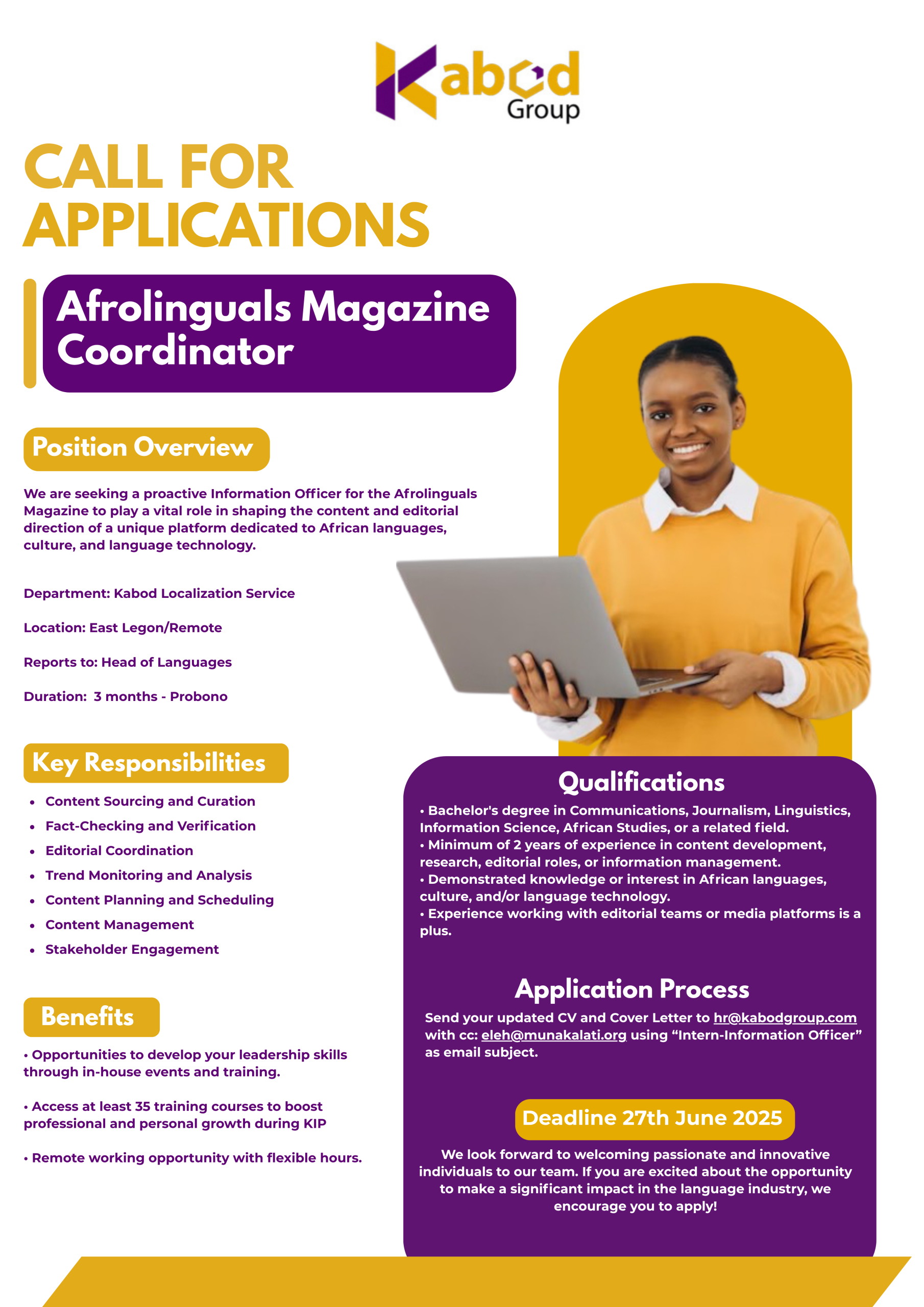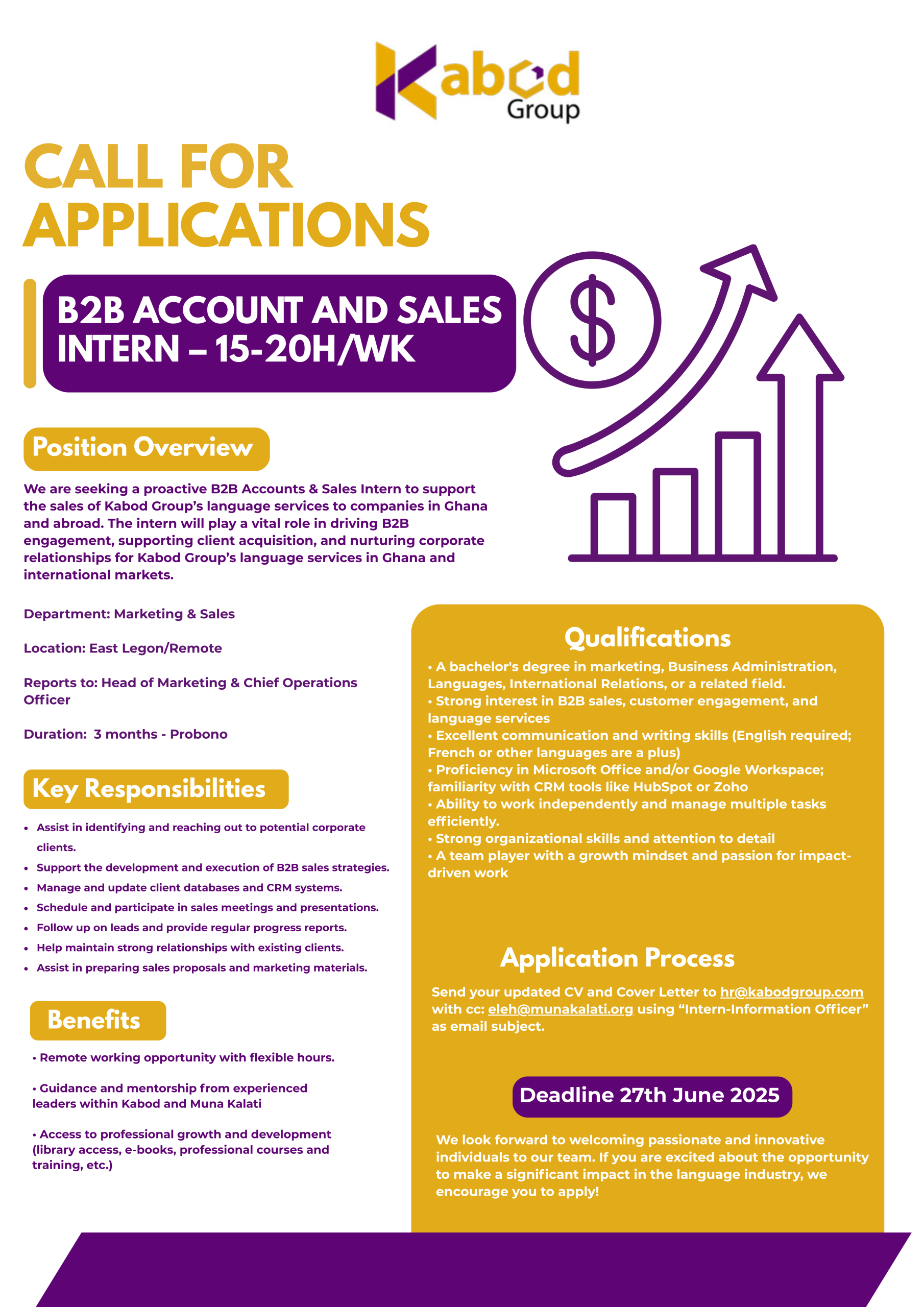The language industry in Africa is full of untapped opportunities. Kabod has ventured on a journey of identifying, documenting and highlighting inspiring stories and innovative projects from entrepreneurs, researchers and freelancers in the translation, interpretation and natural language processing communities. The final goal is to celebrate African professionals in the language industry and facilitate knowledge and experience sharing.
Mr. Stephen Kwadwo Boateng is next on our list! He is the founder of iTranscribe Consult in Ghana. They offer language consultation, translation, interpretation, transcription and transcreation services into Asante Twi and English languages, etc. Below is the result of a conversation with him about his journey in the language industry.
Kabod: What attracts you to the role of translator? How did you start?
My zeal to see African Languages reach the global world with no difficulties is what attracts me to the role of translator. I started as a translator in 2013 after gaining admission to the university to study Asante Twi. Since then, I have loved to work in the language industry and I am currently working more as a language consultant.
Kabod: How does your native language influence your fluency with other languages?
The Asante Twi dialect which is a part of the Akan Language is unique. Aside from its tonal nature, it has various sounds that are similar to other languages, especially the English Language.
Kabod: What are some relevant initiatives you worked on?
I have personally worked on the Google Gboard project which is a keyboard available on all stores that seek to have a word bank for suggesting words while users type in Twi.
Kabod: What aspect or type of translation do you find most difficult? Why?
Technology/Engineering Domain because with Akan where I work in, technology and engineering has very limited or almost no vocabulary. What we mostly do is to transliterate which becomes very difficult due to our alphabet.
Kabod: How do you market yourself and your services as a translator?
I have a website and on almost all language providers websites such as ProZ, freelancer, fiver, upwork. This helps people to reach out to us when they search for our services online.
Kabod: How did you get your first contract?
I had my first contract via Facebook after I sent a message to Kasahorow; one of the companies dedicated to promoting African Languages. Interestingly, they replied to my message after a year, but that was a breakthrough for me as a translator.
Kabod: How can African translators position themselves to better tap opportunities in the global language industry?
With the growing technological trends, African Language Providers should be very visible online by joining all Language Providers sites like the ones i listed above which are ProZ, freelancer, fiver, upwork, etc., and remain committed to clients for recommendations.
Kabod: What strategies do you use to increase your pool of clients while maintaining the existing ones?
Mostly after our first encounter with a client, we continue to send them messages during holidays. We also have personal contacts with some of them to still get in touch with them. We keep advertising to reach out to potentially new clients.
Kabod: Do you have any translation topics or areas that you specialize in? Why those topics?
Yes, and it is because no one is a repository of knowledge. When I get a project outside my domain, I spend time reading up on the subject and continue to update myself with other areas.
Kabod: How do you leverage technology to facilitate your work as a translator? Which Computer Assisted Translation tool do you prefer and why?
Yes, technology has been a very instrumental part of our work as translators. I use CAT tools and mostly clients give access to some of these CAT tools for their projects. I personally use OmegaT, WordBee and Trados.
Kabod: Do you think there is a viable market for African languages’ translation? Are there enough economic opportunities for translators in African languages?
Yes, I think the market is very big for African Languages Translators. However, solely freelancing as an African Language Translator is a bit difficult to sustain one economically. I will advise African Languages Translators to look for other opportunities such as Transcription, Transcreation, Subtitling in their language pairs.
Kabod: Are you aware of any network for translators in African languages? Are you a member of a strong network of translators or interpreters such as ALATT? Kindly mention them.
No, I personally don’t belong to any Network for African Languages. I think there are Country Based Networks, but not an African Wide one. However, I am a member of the International Literacy Association.
Kabod: What are the three top pieces of advice that you will share to a budding translator/interpreter from Africa from your experiences?
1. Build online presence
2. Invest in yourself and CAT tools
3. Network with other Language Professionals
Kabod: How do you envision the future of translation in African languages?
I see a very great future for the language industry in African Languages, however, with the current trends of technology, I think machine translation even in African Languages will gradually take over the industry in the future.
Thanks, Mr. Kwadwo, for your time and for sharing your experiences with us.
Are you also in the language industry in Africa? Would you also like to be featured in our Knowledge Exchange Series, which highlights the journey and experiences of African language translators, interpreters, computational linguists etc.,? Then, reach out to languages@kabodgroup.com to express interest.




